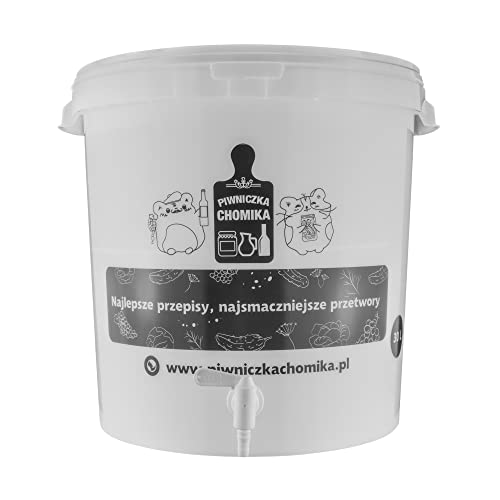I’m drawing off the RO water ready for brew day, hopefully, tomorrow. I haven’t cleared it with Mrs K as yet

. A session APA.
I generally use 50% RO and 50% Tap water as a base for a pale ale but this time I’m using 100% RO and starting from scratch and looking to achieve my preferred profile with salt additions using Brewers Friend.
I started with the Punk 2010 recipe and, whilst looking to make a couple of adjustments utilising hop stock and adding some torrified wheat, I’ve effectively butchered it and ended up with something which, apart from the CML Punkd dry hop addition, no longer bears any resemblance to their recipe at all.
Anyway, I think it looks ok on paper so let’s go for it!
HOME BREW RECIPE:
Title: Session APA
Brew Method: All Grain
Style Name: American Pale Ale
Boil Time: 60 min
Batch Size: 23 liters (fermentor volume)
Boil Size: 27.3 liters
Boil Gravity: 1.039
Efficiency: 80% (brew house)
STATS:
Original Gravity: 1.044
Final Gravity: 1.009
ABV (standard): 4.66%
IBU (tinseth): 36.34
SRM (morey): 5.86
Mash pH: 5.48
FERMENTABLES:
3.5 kg - Minch Malt Extra Pale (85.4%)
200 g - Crystal Malt I (4.9%)
200 g - CaraRed (4.9%)
200 g - Torrified Wheat (4.9%)
HOPS:
18 g - Summit (18.5 AA), Type: Pellet, AA: 15, Use: Boil for 60 min, IBU: 32.93
10 g - Amarillo (8.6 AA), Type: Pellet, AA: 8.6, Use: Whirlpool for 15 min at 80 °C, IBU: 1.12
10 g - Mandarina Bavaria (8.5 AA), Type: Pellet, AA: 8.5, Use: Whirlpool for 15 min at 80 °C, IBU: 1.11
20 g - Willamette (4.5 AA), Type: Pellet, AA: 4.5, Use: Whirlpool for 15 min at 80 °C, IBU: 1.17
125 g - CML Punk’d (??AA), Type: Pellet, Use: Dry Hop for 5 days
MASH GUIDELINES:
1) Strike, Temp: 65 C, Time: 60 min, Amount: 17.77 L
2) Sparge, Temp: 76 C, Time: 15 min, Amount: 12.81 L
OTHER INGREDIENTS:
1.3 g - Calcium Chloride, Type: Water Agt, Use: Mash
1.6 g - Epsom Salt, Type: Water Agt, Use: Mash
4.2 g - Gypsum, Type: Water Agt, Use: Mash
0.8 g - Table Salt, Type: Water Agt, Use: Mash
0.5 each - Protafloc, Time: 15 min, Type: Fining, Use: Boil
0.9 g - Calcium Chloride, Type: Water Agt, Use: Sparge
3 g - Gypsum, Type: Water Agt, Use: Sparge
YEAST:
Crossmyloof Brew - Five
Starter: No
Form: Dry
Attenuation (avg): 78%
Flocculation: High
Optimum Temp: 17.22 - 27.78 C
Fermentation Temp: 20 C
TARGET WATER PROFILE:
Profile Name: APA
Ca2: 74.1
Mg2: 5.1
Na: 10.2
Cl: 50.4
SO4: 151.1
HCO3: 0


















![BREWING THERMOMETER STICKERS ACCURATELY MONITOR FERMENTING BEER & WINE LIQUID TEMPERATURES 5PCS HOME BREW SPIRITS WINE LCD ADHESIVE [US]](https://m.media-amazon.com/images/I/311DDjo2X3L._SL500_.jpg)


























